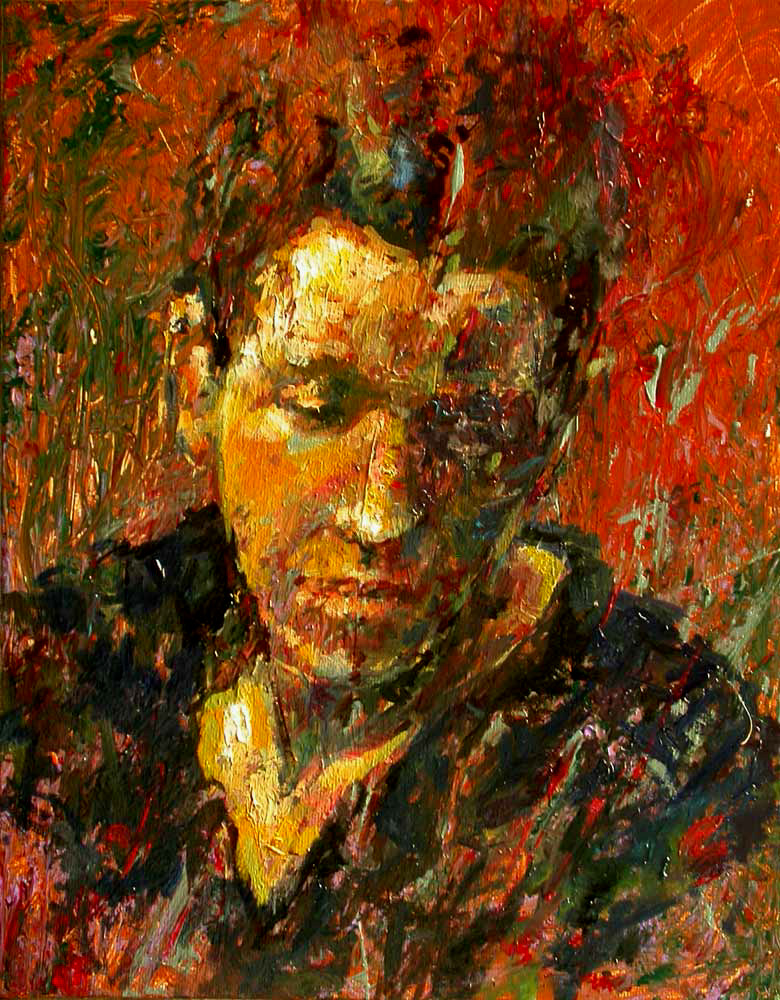 Eric G. Wilson in a Los Angeles Times opinion article entitled 'The Miracle of Melancholia’ suggests that we are a nation obsessed with being happy, but sometimes feeling bad can do you some good. Wilson writes: In April of 1819, right around the time that he began to suffer the first symptoms of tuberculosis the poet John Keats sat down and wrote, in a letter to his brother, George, the following question: "Do you not see how necessary a World of Pains and troubles is to school an Intelligence and make it a Soul?"
Eric G. Wilson in a Los Angeles Times opinion article entitled 'The Miracle of Melancholia’ suggests that we are a nation obsessed with being happy, but sometimes feeling bad can do you some good. Wilson writes: In April of 1819, right around the time that he began to suffer the first symptoms of tuberculosis the poet John Keats sat down and wrote, in a letter to his brother, George, the following question: "Do you not see how necessary a World of Pains and troubles is to school an Intelligence and make it a Soul?" Implied in this inquiry is an idea that is not very popular these days which is characterized by an almost collective yearning for complete happiness. That idea is this: A person can only become a fully formed human being, as opposed to a mere mind, through suffering and sorrow. This notion would seem quite strange, possibly even deranged, in a country in which almost 85% of the population claims to be "very happy" or at least "happy." Indeed, in light of our recent craze for positive psychology as well as in light of our increasing reliance on pills that reduce sadness, anxiety and fear, we are likely to challenge Keats' meditation outright, to condemn it as a dangerous and dated affront to the modern American dream.
But does the American addiction to happiness make any sense, especially in light of the poverty, ecological disaster and war that now haunt the globe, daily annihilating hundreds if not thousands? Isn't it, in fact, a recipe for delusion? And aren't we merely trying to slice away what is most probably an essential part of our hearts, that part that can reconcile us to facts, no matter how harsh, and that also can inspire us to imagine new and more creative ways to engage with the world? Bereft of this integral element of our selves, we settle for a status quo. We yearn for comfort at any cost. We covet a good night's sleep. We trade fortitude for blandness.
When Keats invoked the fertility of pain, he knew what he was talking about. Though he was young when he composed his question -- only 24 -- he had already experienced a lifetime of pain. His father had died after falling from a horse when the future poet was only 9. A few years later, Keats nursed his mother assiduously through tuberculosis, but she died in 1810, when he was 15. Soon after, he was taken from a boarding school he loved and required to apprentice as an apothecary; he then underwent a gruesome course in surgery in one of London's hospitals (in the days before anesthesia).
Orphaned and mournful, Keats spent his days brooding. But after much contemplation, he decided that sorrow was not a state to be avoided, not a weakness of the will or a disease requiring cure. On the contrary, Keats discovered that his ongoing gloom was in fact the inspiration for his greatest ideas and his most enduring creations. What makes us melancholy, Keats concluded, is our awareness of things inevitably passing -- of brothers dying before they reach 20; of nightingales that cease their songs; of peonies drooping at noon. But it is precisely when we sense impending death that we grasp the world's beauty.
Keats was of course not the only great artist to translate melancholia into exuberance. This metamorphosis of sadness to joy has been a perennial if frequently unacknowledged current in Western art. Consider George Frideric Handel, the 18th century composer. By 1741, when he was in his mid-50s, Handel found himself a fallen man. Once a ruler of the musical world, he had suffered several failed operas as well as poor health. He was left in a state of poverty, sickness and heartsickness. Living in a run-down house in a poor part of London, he expected any day to be thrown into debtor's prison or to die. But then, out of nowhere, as if by some divine agency, Handel received a libretto based on the life of Jesus and an invitation to compose a work for a charity benefit performance. On Aug. 22, 1741, in his squalid rooms on Brook Street, Handel saw potentialities no one had before seen. Immediately, he felt a creative vitality course through his veins. During a 24-day period, he barely slept or ate. He only composed, and then composed more. At the close of this brief period, he had completed "Messiah" his greatest work, a gift from the depths of melancholia.
We could also recall Georgia O'Keeffe, the 20th century painter. In the late 1920s and early 1930s, O'Keeffe left the East Coast for Taos, N.M. She fell profoundly in love with the lonely vistas of this world denuded of human corruption. However, even though she was enlivened by this part of the world, in 1932, her lifelong battle with melancholia caught up with her. She was hospitalized for psychoneurosis. Rather than quelling her creative spirit, this breakdown did the opposite. Upon being discharged, she returned to the Southwest. There, in 1935, she painted some of her bleakest and most beautiful landscapes: "Purple Hills near Abiquiu" and "Ram's Head, White Hollyhock Hills." Both feature dark things amid the desert's glare -- gloomy shadows and stormy clouds. Into these haunting shades -- hovering amid hard-scrabble rock and a sinister skull -- one stares. One senses something there as silent and sacred as bones.
Joni Mitchell confessed in an interview that she has frequently endured long periods of gloom. But she has not shied away from the darkness. Instead, she sees her sorrow as the "sand that makes the pearl" -- as the terrible friction that produces the lustrous sphere. Given her fruitful struggles with sadness, Mitchell has understandably feared its absence. "Chase away the demons," she has said, "and they will take the angels with them."
Melancholia, far from error or defect, is an almost miraculous invitation to rise above the contented status quo and imagine untapped possibilities. We need sorrow, constant and robust, to make us human, alive, sensitive to the sweet rhythms of growth and decay, death and life. This of course does not mean that we should simply wallow in gloom, that we should wantonly cultivate depression. I'm not out to romanticize mental illnesses that can end in madness or suicide. On the contrary, following Keats and those like him, I'm valorizing a fundamental emotion too frequently avoided in the American scene. I'm offering hope to those millions who feel guilty for being downhearted. I'm saying that it's more than all right to descend into introspective gloom. In fact, it is crucial, a call to what might be the best portion of ourselves, those depths where the most lasting truths lie.
Eric G. Wilson is a professor of English at Wake Forest University and author of "Against Happiness: In Praise of Melancholy."
Melancholia - a miraculous invention?
Posted February 26, 2008
 In a series of threads in this blog (
In a series of threads in this blog (